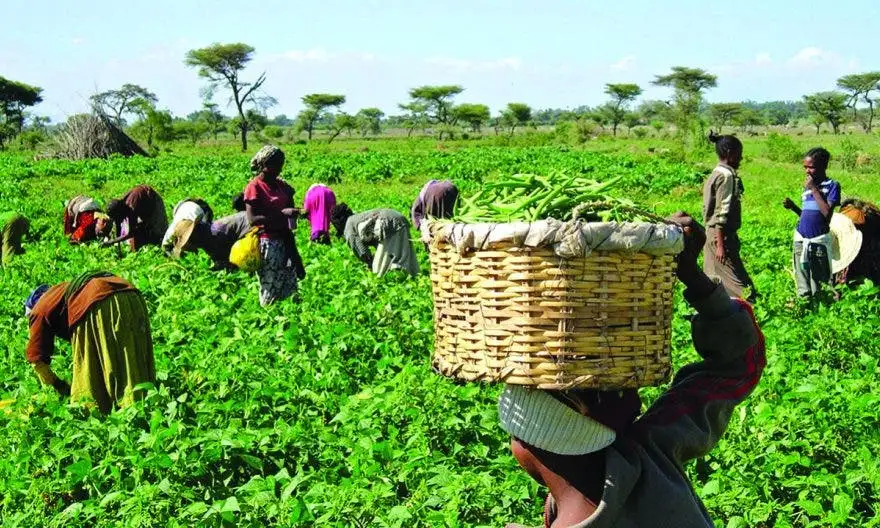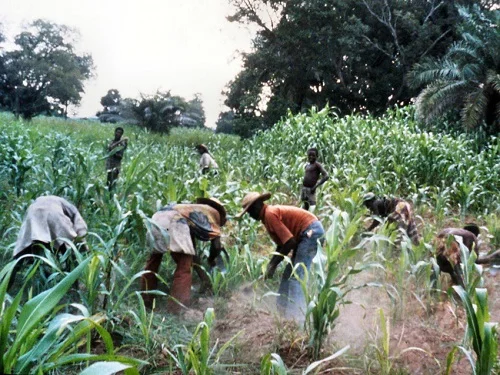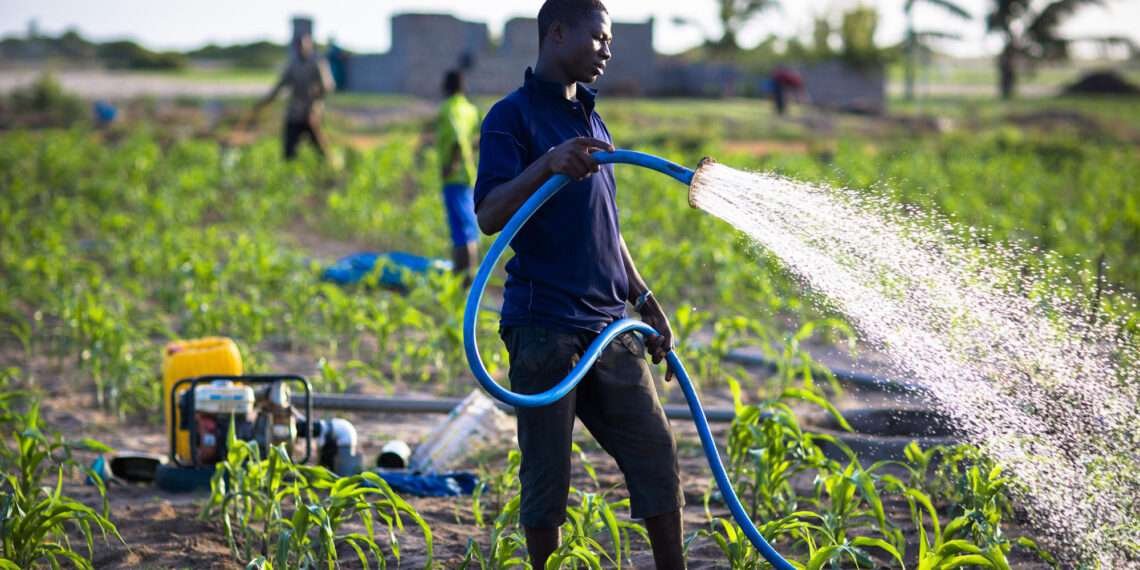Ghana’s efforts to combat graduate unemployment have taken a significant leap forward, with the Ministry of Youth Development and Empowerment rolling out two major initiatives under the National Service Authority (NSA) aimed at tackling the youth employment challenge.
Speaking at the Government Accountability Series on Monday, August 4, 2025, Minister for Youth Empowerment and Development, Hon. George Opare Addo, confirmed that the Feed Ghana and HAPI programs are currently being implemented by the NSA.
These strategic interventions are tailored to harness the potential of Ghana’s youthful population by promoting self-sufficiency and entrepreneurship.
The Feed Ghana program is designed to use agriculture as a means to drive economic participation among the youth.
Together with the HAPI (Horticulture and Agribusiness Productivity Initiative), the initiative targets national service personnel, particularly those with expertise in agriculture, agribusiness, and other related fields.
The Ministry indicated that these programs will serve as a launchpad for thousands of service personnel to transition into permanent employment or entrepreneurial roles.
“These initiatives will train 45,000 national service personnel with backgrounds in agriculture, agribusiness, and related fields to create dignified and fulfilling job opportunities for over 88,000 young people.”
Hon. George Opare Addo
Significant progress has already been achieved under the initiative. Acting on the directive of the Ministry, the National Service Authority (NSA) has successfully cultivated 1,500 acres of maize, with 1,000 acres now fully matured and ready for harvest.

This remarkable milestone highlights the program’s emphasis on delivering timely results and demonstrates its strong potential to make a meaningful and lasting contribution to Ghana’s national food supply chain and agricultural self-sufficiency goals.
In addition to maize, tomato cultivation has begun on a pilot basis, covering approximately 100 acres in Kumawu and Yapei.
The Minister explained that these sites were chosen based on soil quality and logistical access, with an aim to replicate the model in other regions depending on performance metrics.
Youth Employment In Agribusiness Expanded Through Key Partners
Hon. Opare Addo also revealed that the NSA has engaged anchor partners to scale up production. Currently, 500 acres are under active cultivation through these partnerships.
The target is to expand to 2,000 acres of cultivation by September 2026. Such partnerships are vital for ensuring sustainability, efficiency, and market access for produce from the youth-led farming initiatives.
The HAPI program, which complements Feed Ghana, extends beyond just cultivation. It focuses on the entire agribusiness value chain, training young people in processing, packaging, and agritech innovations.

The NSA’s integrated approach seeks to empower participants not just as laborers but as stakeholders in Ghana’s agricultural economy.
“The National Service Authority, in collaboration with the National Entrepreneurship and Innovation Program and various stakeholders, is actively working to develop an entrepreneurship-based deployment model.
“This initiative is designed to empower graduate job seekers by equipping them with the skills and resources they need to become successful job creators.”
Hon. George Opare Addo
The model will allow national service personnel with viable business ideas to undertake their service through youth-led ventures that meet service requirements.
These ventures will be provided with access to structured incubation, technical mentorship, and capital resources, thus transforming the traditional service model into a dynamic, impact-driven framework.
As part of the broader youth employment strategy, the Minister stated that this entrepreneurial model aims to support at least 1,000 graduate-led businesses in its first year.
The objective is to transition from a system of dependency on public and private sector job placements to one that emphasizes self-employment, innovation, and sustainability.
Moreover, these developments are not happening in isolation. The Ghanaian government, through its inter-agency collaborations, is actively building a national support system that includes agricultural extension services, startup capital access, and market facilitation to ensure long-term business viability for young entrepreneurs.

Hon. George Opare Addo reiterated that the Ministry’s efforts reflect the government’s broader vision of inclusive development, where no graduate is left behind.
He stressed that these youth-focused programs are a direct response to the rising demand for impactful public policy solutions that bridge the skills gap and create job opportunities.
The Feed Ghana and HAPI programs thus represent a transformative shift in how national service is perceived—not as a routine requirement, but as a strategic vehicle for youth employment, skills development, and sustainable economic growth.
The early successes of the initiatives offer a strong foundation for scale-up, replication, and greater investment.
As Ghana looks to the future, the combination of agriculture, entrepreneurship, and structured national service offers a promising blueprint for solving one of its most pressing challenges: providing dignified, rewarding work for its growing youth population.
READ ALSO: Pakistan Resumes Forced Expulsions Of Afghan Refugees























